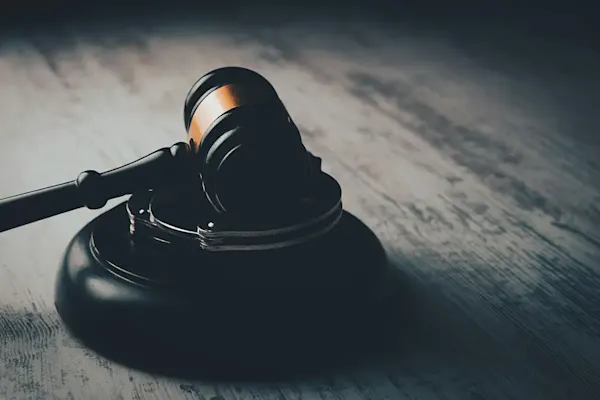Understanding 2nd Degree Assault Colorado Charges
When most people hear "assault," they think of bar fights or playground scuffles. But Colorado law sees things differently, and the gap between common assumptions and legal reality can be surprisingly wide. Second-degree assault charges occupy a unique middle ground in Colorado's criminal code - serious enough to land you in prison, yet different enough from first-degree charges that the strategies and outcomes vary considerably.
Here's what makes these charges distinct and why getting the details right matters more than you might think:
Intent vs. outcome: Unlike simple assault, prosecutors must prove you intended to cause serious harm or used a weapon
Felony territory: These charges carry real prison time, not just fines or probation
Victim categories: Assaulting certain people (like police officers or paramedics) automatically elevates the charges
Weapon involvement: Even objects you wouldn't normally consider "weapons" can push charges into this category
Why These Charges Hit Different
The difference between facing a misdemeanor and a felony assault charge isn't just academic - it's the difference between a bad weekend and years behind bars. Colorado treats 2nd Degree Assault Colorado cases as serious business because they involve either weapons, significant injuries, or attacks on people society has decided deserve extra protection.
What You'll Find in This Guide
Getting charged with second-degree assault doesn't mean you're automatically guilty, but it does mean you need to understand exactly what you're dealing with. This breakdown covers:
The specific behaviors that qualify as 2nd degree assault under Colorado law
Real-world penalties you could face, including prison time and long-term consequences
Defense strategies that actually work in Colorado courts
How these cases move through the legal system from arrest to resolution

What Constitutes 2nd Degree Assault Colorado Law
Colorado law doesn't mess around when defining second-degree assault. The statute, found in Colorado Revised Statutes § 18-3-203, lays out specific circumstances that separate this charge from both lesser and greater assault offenses. Think of it as the legal system's way of saying "this behavior crosses a line, but maybe not the biggest line." Understanding exactly where that line sits can make the difference between effective defense strategies and spinning your wheels on arguments that won't work.
The Legal Framework Prosecutors Work With
Colorado's second-degree assault statute covers several distinct scenarios, each with its own requirements. Prosecutors don't get to pick and choose - they have to prove every element of whichever version they're charging you with.
Intentionally causing serious bodily injury to another person
Causing serious bodily injury through the use of a deadly weapon (even if you didn't mean to cause serious harm)
Knowingly applying unlawful physical force to a peace officer, firefighter, emergency medical technician, or similar protected person
Intentionally causing stupor, unconsciousness, or other physical impairment by administering drugs or controlled substances without consent
Causing serious bodily injury while committing or attempting to commit certain other felonies
Intent Matters More Than You Think
The word "intentionally" appears throughout the 2nd Degree Assault Colorado statute for good reason. Accidents, even serious ones, typically don't qualify for these charges. But here's where it gets tricky - prosecutors don't need to prove you intended the specific injury that occurred, just that you intended to cause some form of serious harm.
Direct intent: You meant to seriously hurt someone and did
Transferred intent: You meant to hurt Person A but accidentally hurt Person B instead
Reckless conduct with deadly weapons: Using a weapon in a way that shows extreme indifference to human life
The accident exception: Genuine accidents during lawful activities usually don't count, but the bar for "accident" is higher than most people expect
Real-World Scenarios That Lead to These Charges
Law enforcement and prosecutors see certain patterns repeatedly when filing second-degree assault charges. These situations help illustrate how the abstract legal language plays out in practice.
Bar fights involving bottles, pool cues, or other improvised weapons that cause significant injuries
Domestic disputes where strangulation occurs or serious injuries result
Road rage incidents involving vehicles as weapons or serious physical altercations
Assaults on police officers during arrests, even if no serious injury occurs
Drug-facilitated assaults including spiking drinks or using substances to incapacitate victims
Self-defense situations gone wrong where the response exceeds what's legally justified

The Spectrum of 2nd Degree Assault Colorado Cases
Not all second-degree assault charges are created equal. Colorado's legal system recognizes that different types of harmful behavior deserve different levels of attention and punishment. Some cases involve split-second decisions that escalated beyond anyone's intentions. Others involve calculated actions that cross clear moral and legal boundaries. Understanding which category your situation falls into affects everything from bail decisions to plea negotiations to potential sentences.
Assault with a deadly weapon: Using guns, knives, vehicles, or even household objects in ways that create serious risk of death or injury
Causing serious bodily injury with intent: Deliberately inflicting harm that results in broken bones, permanent disfigurement, or injuries requiring significant medical treatment
Assault on peace officers, firefighters, and emergency personnel: Any physical force against protected professionals, regardless of injury severity
Strangulation cases: Applying pressure to someone's neck or throat, which Colorado treats as automatically serious due to high lethality risk
Assault during commission of other felonies: Violent acts that occur while committing burglary, robbery, kidnapping, or other serious crimes
Drug-facilitated assault: Using substances to incapacitate victims, including spiking drinks or forcing consumption of drugs or alcohol
How Courts Actually Handle These Different Cases
The reality of 2nd Degree Assault Colorado prosecutions is that context matters enormously. A bar fight where someone gets hit with a beer bottle looks very different to judges and juries than a domestic violence case involving strangulation, even though both might technically fall under the same statute. Prosecutors know this, defense attorneys know this, and anyone facing these charges needs to understand it too. The specific circumstances of your case don't just determine your legal strategy - they shape how everyone in the courtroom, from the judge to potential jurors, will view your situation from the moment charges are filed.

Potential Penalties and Consequences
The numbers matter, but they don't tell the whole story. Colorado classifies most second-degree assault cases as Class 4 felonies, which sounds clinical until you realize what that means for your actual life. Beyond the immediate legal penalties, these charges create ripple effects that can last for years. Some people bounce back relatively quickly. Others find that a single conviction reshapes their career prospects, housing options, and personal relationships in ways they never anticipated.
Class 4 felony baseline: 2 to 6 years in prison, with possible probation for first-time offenders in some circumstances
Enhanced penalties for aggravating factors: Crimes of violence designation can extend sentences significantly
Actual sentencing patterns: You'll want to speak with a seasoned criminal defense attorney to discuss your circumstances and actual sentencing range
Financial costs: Fines up to $500,000, plus restitution for victim medical expenses and other damages
Professional licensing consequences: Automatic review and possible suspension or revocation for healthcare workers, teachers, attorneys, and others
Immigration impacts: Deportation proceedings for non-citizens, even those with green cards or pending citizenship applications
Long-term collateral damage: Employment screening failures, housing application denials, and loss of certain civil rights including gun ownership
The Reality Behind the Statistics
When people ask about 2nd Degree Assault Colorado penalties, they usually want to know if they're going to prison and for how long. That's understandable, but it misses the bigger picture. Prison time is just the beginning. The conviction stays on your record permanently in most cases, showing up on background checks for jobs, housing, professional licenses, and even volunteer opportunities. Some employers will overlook a DUI from ten years ago. Very few will overlook a violent felony, regardless of the circumstances.
If you're facing second-degree assault charges in Colorado, the stakes are high enough that generic legal advice won't cut it. The experienced criminal defense attorneys at The Reputation Law Group understand how these cases actually work in Colorado courts and can help you build the strongest possible defense for your specific situation. Contact us today for a consultation that could make all the difference in protecting your future.

Building Your Defense Against These Charges
Defense strategies aren't one-size-fits-all solutions. What works brilliantly in one case might backfire spectacularly in another, depending on the evidence, witnesses, and specific circumstances involved. Smart defense work starts with understanding exactly what the prosecution has to prove and then systematically challenging each element they can't establish beyond a reasonable doubt. Sometimes that means arguing you never intended to hurt anyone. Other times it means showing the alleged victim's injuries weren't as serious as claimed. And sometimes it means proving the whole thing was justified from the start.
Self-defense and defense of others: When using force was legally justified to protect yourself or someone else from imminent harm
Intent challenges: Proving the harm was accidental, reckless, or less deliberate than prosecutors claim
Injury severity disputes: Challenging whether the harm actually meets Colorado's "serious bodily injury" standard
Procedural violations: Identifying police misconduct, illegal searches, or other constitutional violations that could exclude evidence
Witness reliability problems: Exposing inconsistencies, bias, or credibility issues with prosecution witnesses
Mental health considerations: When psychological conditions affected your ability to form intent or understand your actions
Self-Defense and Protection of Others
Colorado's "Make My Day" law and broader self-defense statutes give people significant rights to protect themselves and others from harm. But these protections aren't unlimited, and the details matter enormously. You can't claim self-defense just because you felt threatened - the threat has to be immediate, the force you used has to be proportional, and you generally can't be the one who started the confrontation.
Challenging the Intent Element
Prosecutors love intent arguments because they seem straightforward, but intent is actually one of the hardest things to prove in court. Unless you explicitly told someone "I'm going to seriously hurt you" and then did exactly that, there's usually room to argue about what you were really thinking and planning. Maybe you intended to push someone away, not cause serious injury. Maybe you were defending yourself and things escalated beyond what anyone expected.
When Injuries Aren't What They Seem
Colorado defines "serious bodily injury" as harm that creates a substantial risk of death, causes serious permanent disfigurement, or results in long-term loss of bodily function. That's more specific than it sounds. A broken nose might look terrible and hurt like hell, but it might not legally qualify as "serious bodily injury" if it heals normally. Medical records become battlegrounds in these cases, with expert witnesses arguing about prognosis, treatment necessity, and long-term effects.
Procedural Defenses That Actually Work
Police work isn't perfect, and when officers make mistakes, those mistakes can doom the prosecution's case. Maybe they conducted an illegal search. Maybe they failed to read Miranda rights at the correct time. Maybe they coerced a confession or failed to preserve important evidence. These procedural violations don't mean you're innocent, but they can mean the prosecution can't prove you're guilty.
Fourth Amendment violations: Illegal searches, seizures, or arrests that taint evidence
Miranda violations: Failure to properly advise suspects of their rights during custodial interrogation
Chain of custody problems: Missing or contaminated physical evidence
Discovery violations: Prosecutors failing to turn over exculpatory evidence or witness statements
Speedy trial violations: Cases that drag on too long without good reason
Mental Health and Capacity Defenses
Mental health issues don't automatically excuse violent behavior, but they can significantly affect how 2nd Degree Assault Colorado cases get resolved. Sometimes psychological conditions prevent someone from forming the specific intent required for conviction. Other times, mental health treatment becomes part of a plea agreement that avoids prison time. The key is having proper psychological evaluations and expert testimony that explains how mental health issues affected the specific incident in question.
Diminished capacity: Mental conditions that prevented forming the required intent
Insanity defenses: Rare cases where mental illness prevented understanding right from wrong
Voluntary intoxication limitations: Why being drunk or high usually doesn't help your case
Involuntary intoxication: When someone else drugged you without your knowledge
Treatment-focused plea agreements: Resolving cases through mental health court or similar programs

How These Cases Actually Work Through the System
The criminal justice process isn't as dramatic as television makes it look, but it's more complicated than most people expect. From the moment handcuffs click to the final gavel bang, second-degree assault cases follow predictable patterns with unpredictable variations. Understanding the timeline helps you make better decisions at each stage, whether that's cooperating with investigators, negotiating bail terms, or deciding whether to accept a plea offer or roll the dice at trial.
Arrest and booking: Initial detention, Miranda rights, questioning, and formal charges
Bail hearings and pretrial detention: Getting released while your case is pending
Discovery and investigation: Both sides gathering evidence and building their cases
Plea negotiations: The reality that most cases resolve without going to trial
Trial proceedings: What actually happens when cases go before judges and juries
Sentencing and appeals: Final resolution and potential next steps
The First 72 Hours Matter Most
Everything moves fast after an arrest, and the decisions you make in those first few days can shape your entire case. Police want to interview you while emotions are high and details are fresh. Prosecutors want to file charges while public attention is focused. Your family wants you out of jail immediately. But the best long-term strategy often involves slowing things down, staying quiet, and letting an experienced attorney handle the early negotiations that determine whether you spend months in jail waiting for trial or go home to prepare your defense.
Bail and Pretrial Release Reality
Getting out of jail while your case is pending isn't automatic, even if you can afford bail. Judges consider public safety, flight risk, and the specific circumstances of your case. Second-degree assault charges involving weapons, domestic violence, or serious injuries often result in high bail amounts or restrictive conditions.
Bail amount factors: Severity of injuries, use of weapons, criminal history, and community ties
Bond conditions: No-contact orders, GPS monitoring, alcohol testing, and mental health evaluations
Pretrial detention: When judges decide you're too dangerous or unreliable to release
Violation consequences: How breaking bail conditions can land you back in jail and hurt your case
Plea Bargaining Behind the Scenes
Most 2nd Degree Assault Colorado cases end with plea agreements, not trials. That doesn't mean defendants are automatically guilty - it means the system incentivizes negotiated resolutions that save time and resources for everyone involved. Smart plea negotiations start early and focus on reducing charges, minimizing sentences, or finding alternatives to prison time.
Charge reduction possibilities: Pleading to lesser assault charges or non-violent felonies
Sentence bargaining: Agreeing to specific prison terms or probation conditions
Deferred prosecution: Earning dismissal through community service, treatment, or other requirements
Victim input: How alleged victims' opinions affect prosecutors' willingness to negotiate
If Your Case Goes to Trial
Trials are expensive, time-consuming, and risky for both sides. Prosecutors have to prove every element of their case beyond a reasonable doubt. Defense attorneys only have to create enough doubt to convince one juror that the prosecution hasn't met its burden. The reality is that well-prepared defendants with strong legal representation win assault trials more often than most people expect.
Jury selection: Finding jurors who can be fair despite the serious nature of assault charges
Opening statements: Each side's roadmap for what they plan to prove or disprove
Evidence presentation: Witness testimony, medical records, police reports, and physical evidence
Cross-examination: Challenging prosecution witnesses and exposing weaknesses in their case
Closing arguments: Final chance to persuade jurors before they decide your fate

Getting Help and Moving Forward
The moment you realize you might be facing second-degree assault charges is the moment you should stop trying to handle things yourself. Criminal defense isn't a DIY project, and the stakes are too high to learn through trial and error. The attorneys at The Reputation Law Group have seen these cases from every angle and know how to protect your rights from the very beginning of the process. Whether you've just been arrested or are still under investigation, getting experienced legal help immediately gives you the best chance of achieving a favorable outcome.
When You Need Legal Representation Right Now
Timing matters more in criminal cases than almost any other area of law. Things you say or do in the first few days after an incident can determine whether you spend years in prison or walk away with minimal consequences. The earlier an attorney gets involved, the more options you'll have for protecting yourself and building a strong defense.
Before formal charges are filed: When police want to interview you or you learn you're under investigation
Immediately after arrest: Don't wait for arraignment or your first court date to get legal help
If served with a restraining order: Even civil protective orders can affect criminal cases
When contacted by alleged victims or their families: Any communication could be used against you later
If you think you might be charged: Being proactive often leads to better outcomes than being reactive
What the Legal Process Actually Looks Like
2nd Degree Assault Colorado cases don't resolve overnight, and understanding the timeline helps you make better decisions along the way. Most cases take several months to reach final resolution, with multiple court appearances, investigation periods, and negotiation phases. Your attorney should keep you informed at each step and explain your options clearly.
Initial consultation and case evaluation: Understanding the strengths and weaknesses of your situation
Investigation and evidence gathering: Building your defense while challenging the prosecution's case
Court appearances and procedural requirements: Arraignments, status conferences, and motion hearings
Plea negotiations or trial preparation: Working toward the best possible resolution
Post-resolution issues: Handling appeals, expungement possibilities, or probation requirements
Quick Tips for Protecting Yourself:
Exercise your right to remain silent - don't explain, justify, or apologize to police
Ask for an attorney immediately and don't answer questions until they arrive
Don't contact the alleged victim or their family members under any circumstances
Preserve any evidence that supports your version of events (photos, videos, witness contact information)
Follow all court orders and bail conditions exactly - violations make everything worse

Moving Forward After 2nd Degree Assault Charges
Second-degree assault charges in Colorado aren't just legal problems - they're life problems that require serious solutions. The difference between a conviction that haunts you for decades and a resolution that lets you move forward often comes down to decisions made in the first few weeks after charges are filed. Smart defendants understand that this isn't the time to cut corners, hope for the best, or trust that everything will work out on its own. The legal system is complicated, prosecutors are experienced, and the stakes are too high to leave anything to chance.
Your Future Depends on the Decisions You Make Today
Facing 2nd Degree Assault Colorado charges feels overwhelming because it is overwhelming. But thousands of people have been in your situation and found ways to protect their futures, their families, and their freedom. The key is getting the right help at the right time and making informed decisions based on facts rather than fear. The experienced criminal defense attorneys at The Reputation Law Group have successfully defended clients against these exact charges and know how to build the strongest possible defense for your specific situation. Don't let a single incident define the rest of your life - contact us today to discuss your case and explore your options for moving forward.




